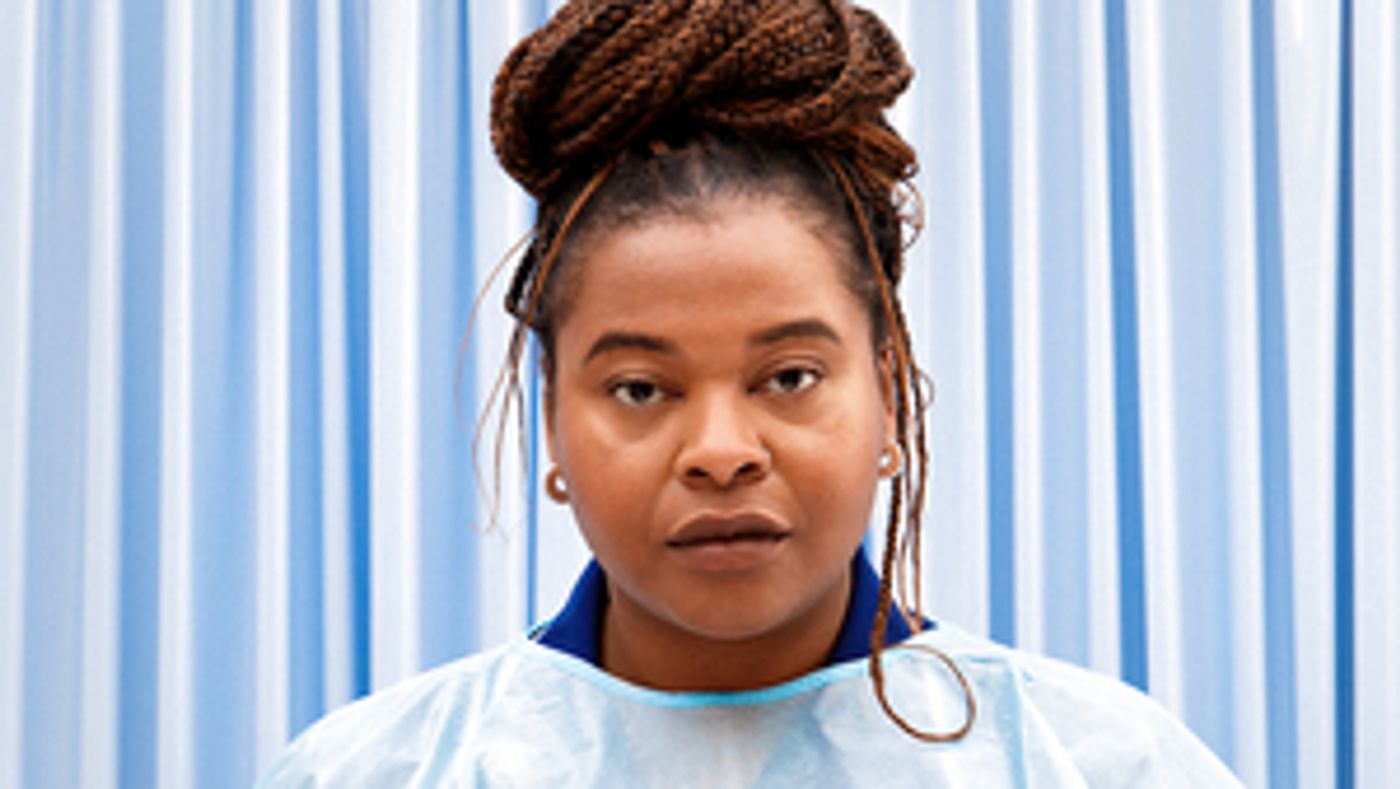Interview: Director Nadia Latif Talks MARYS SEACOLE
Jackie Sibblies Drury's play is having its UK premiere at the Donmar Warehouse

Director Nadia Latif returns this month with the hotly anticipated Marys Seacole written by Jackie Sibblies Drury.
This isn't hyperbole: when the pair last worked on Fairview at the Young Vic in 2019, it was widely applauded for its highbrow commentary and theatrical bravery. In our five-star review, we described this immersive take on black experiences and white perception as "no ordinary play" and "something that you must experience for yourself". So, no pressure.
As a theatre director, Latif was the Genesis Director at the Young Vic from 2018-2020. She will soon be working with Jonathan Majors (Loki, Lovecraft County) on her debut film The Man In My Basement.
The play's subject has been largely forgotten by history, though Mary Seacole was lauded in her time. A pioneering nurse from Jamaica, she travelled to the Crimean War and, with her own resources, set up the "British Hotel" to care for sick and convalescent officers. Seacole was known to Florence Nightingale as they both served during the war in modern-day Ukraine. The "lady with the lamp" had a dim view of her colleague, saying "anyone who employs Mrs Seacole will introduce much kindness - also much drunkenness and improper conduct."
Marys Seacole has already had an Off-Broadway run and arrives in London in a few weeks with a new cast at The Donmar Warehouse. We spoke to Nadia to ask her about the play and how diversity can be improved in the theatre industry.
We loved Fairview and we're very much looking forward to your latest collaboration Marys Seacole with Jackie Sibblies Drury. Was working with her on this play similar to when you worked together on Fairview?
I loved making Fairview, not just with Jackie but with whole creative team, who are reunited on Marys Seacole. I can feel the creative connections we forged in 2019 deepening on this project - sometimes that results in a shorthand, but sometimes we actually use more words in more discussions to get to where we want to go.
How did Covid affect the process of bringing the play to the Donmar?
Both Fairview and Marys Seacole were programmed a really long while before their rehearsal processes started, which I think has reaped similar rewards - a lovely long preparation period of watching films, going to art exhibitions, reading books - and a long window to do a really extensive casting process. So both shows have got absolutely the right people in the right room at the right time.

at The Donmar Warehouse
You're working again with Tom Scutt who has been nominated for an Olivier for his excellent work on Cabaret. What can you tell us about what he will be conjuring up for Marys Seacole?
Tom is a dear friend, and a brilliant designer - but I actually think foremost he's one of the best dramaturgical minds in the business. He always does exactly what the play needs.
I think we both spent a lot of the pandemic (we lived on the same street up until very recently) thinking a lot about how theatre would build back, and to be honest, feeling disappointed with how it has.
It's still totally reliant on burnout, and pulling off miracles just in the nick of time, with no regard for the human or environmental cost of that process. Theatre has to stop chewing up people and stuff and spitting them back out. So we wanted to make a show that focussed on people and kindness and care - and what the play really needs.
The show has already had an Off-Broadway run in 2019. Given that was about three years ago, before George Floyd's death and the rise of Black Lives Matter, has the play changed in tone or content much since its US run?
Yes, but not because of BLM, truth be told. I mean, the biggest thing is that in America nobody knows who Mary Seacole is, and in Britain we have a closer relationship with her story (though plenty of Brits I asked didn't know who she was either). So that made me and Jackie want to push further into the - surprising - elements of the play.
But also the pandemic was the other major player - Mary Seacole was a healer who believed in the power of touch and care - and here we were in a pandemic with healthcare workers placed under inconceivable pressure and strain, and where touch had become dangerous. So that sharpened the play again.
With the passage of time, the new cast and the new venue, has your view of and your approach to this play materially changed?
I like to think I make every play totally specifically to the venue and time. I haven't worked at the Donmar before so I spent a lot of time interrogating who a Donmar audience is, what their expectation of the work could be, their experience of physically entering the theatre space. I spent a lot of time in the theatre foyer trying to tune into what frequency of anticipation a Donmar audience vibrates at.
I also went to watch some biographical plays and films - which, truth be told, aren't my favourite thing, but it was fascinating to see how audiences respond to that type of material as compared to an original story.
In previous interviews, you've spoken about increasing diversity in the arts, especially in terms of gender and race. What would you advise theatre companies to do in 2022?
We don't want schemes, we want jobs. If your company does not at least reflect the make-up of the town or city you're based in, you have failed.
Are there any plans for another play with Jackie and Tom? The best things come in threes, so they say.
If Jackie or Tom want to do another play, I'll drop everything and cross oceans to be there. So, inshallah, soon.
Marys Seacole opens at The Donmar Warehouse on 21 April
Photo credit: Olivia Lifungula
Videos

